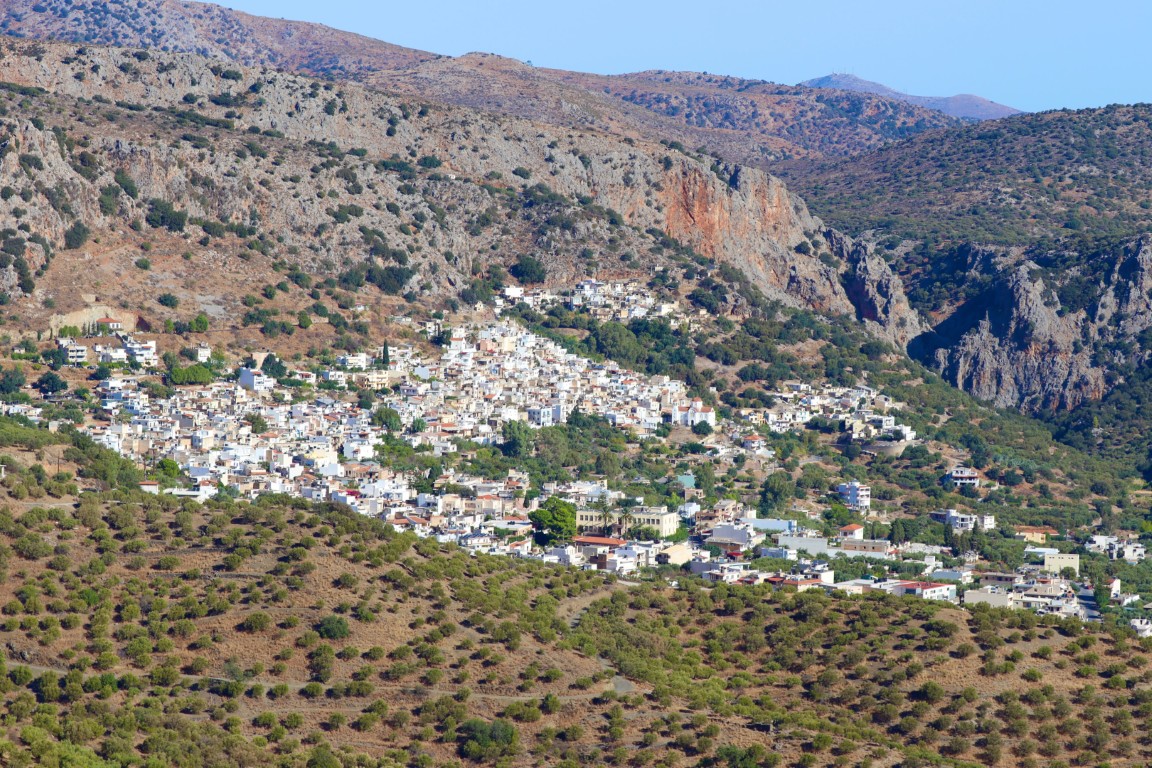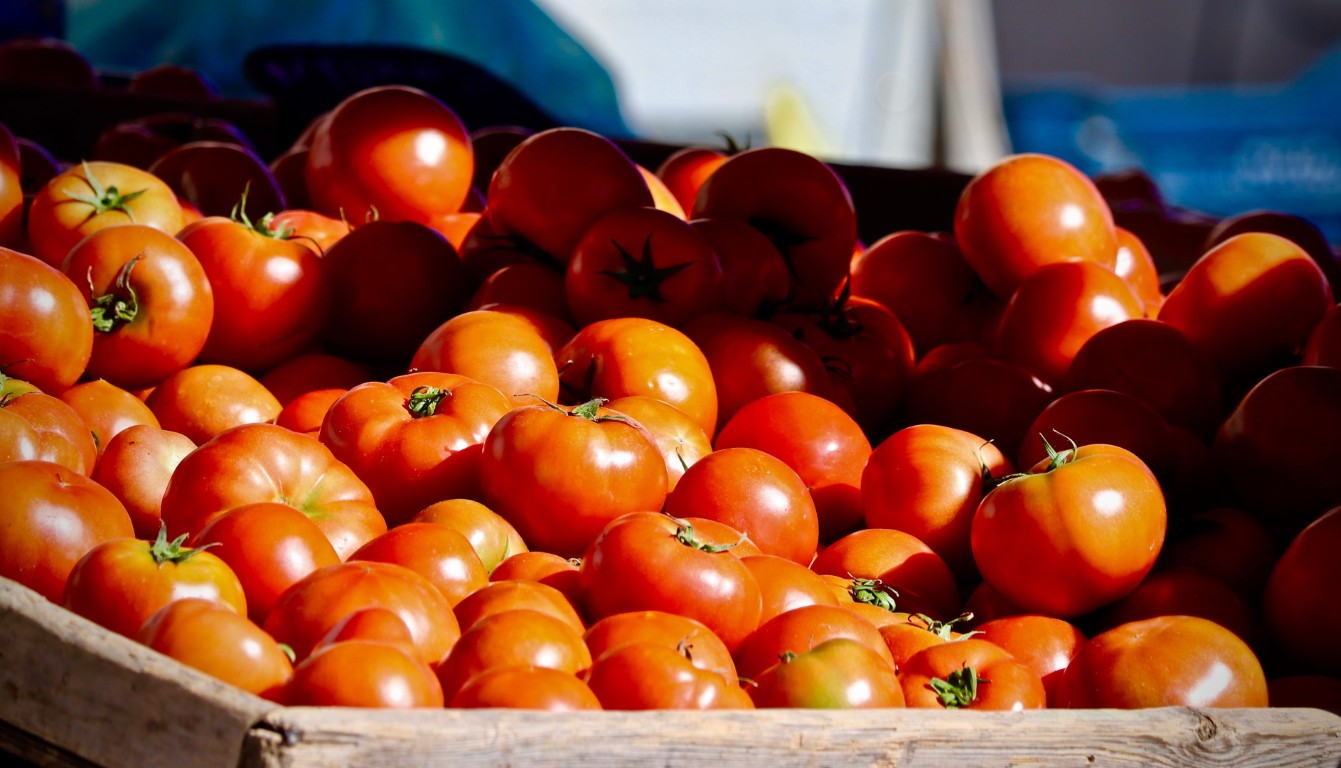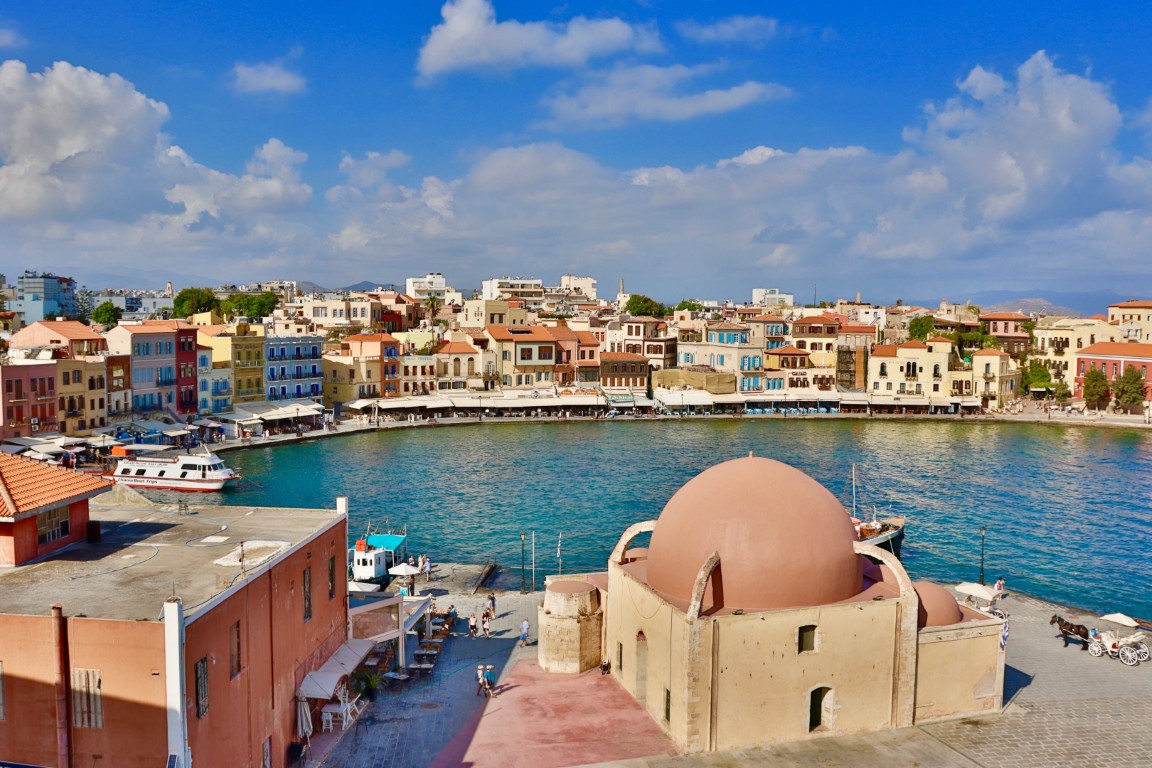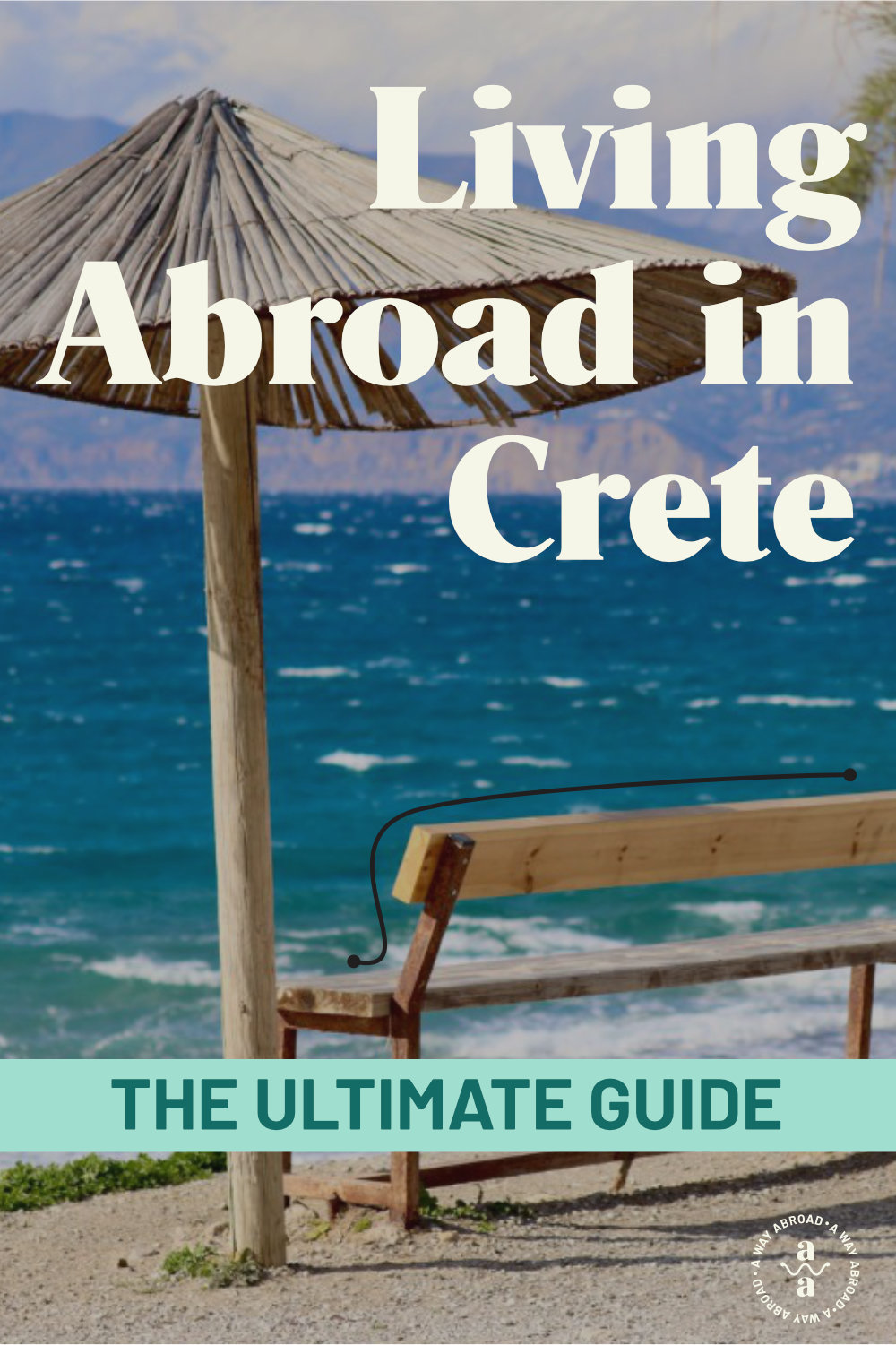There’s nothing like the scent rising off Crete’s mountains early in the morning. Rosemary, oregano and pine greet me when I step onto our balcony, along with a view of olive trees, picturesque white island houses and a stunning, azure sea.
My new life on this beautiful island is very different than in the UK.
As the largest Greek island – 160 miles long and just 37 miles at its widest point and Greece’s most southerly island - Crete offers a unique culture, relaxed lifestyle and an average of 300 days of sunshine a year.
It’s a place of olive groves and award-winning vineyards, stunning beaches, rich history and traditional music - with a mountainous landscape, Europe’s oldest Minoan civilization and the world’s healthiest diet based around olive oil, feta cheese and local produce.
There are four major cities in Crete - each the capital of its own prefecture, connected by a highway along Crete’s north coast:
- Picture-perfect Chania with its charming old town is in the West.
- Rethymnon, a university town with a commanding Venetian fort lies less than an hour to the east.
- Heraklion, the largest city with its port links to Athens commands the centre of the North coast,
- While cosmopolitan Agios Nikolaos with its marina and ‘bottomless’ lake is the administrative centre for Lassithi.
Heraklion Airport and Chania Airport connect the eastern Mediterranean to the rest of the world, while flights and ferries link Sitea on the extreme east coast of Crete with its island neighbours.
Short on time? Here’s the cheat sheet
💭Living in Crete has meant a more relaxed lifestyle, with plenty of sunny days and excuses to spend time outside.
🏠The island is made up of 4 main cities: Chania, Rethymnon, Heraklion, and Agios Nikolaos.
📚Make your transition easier and get a headstart learning the language with Mondly.
🛂Most non-EU citizens who move to Crete are on the Golden Visa, Financially Independent Person (FIP) Type D Visa, or Digital Nomad Visa.
💰Cost of living will depend where on the island you choose to base yourself. Earn travel rewards on all expenses with a Capital One Venture Card.
📞Save the hassle of getting a local SIM or the cost of roaming with Airolo, an e-SIM that’ll have you connected from the moment you arrive.
☂️Although the bureaucracy can be tiresome,
🏖️Living in Crete means a welcoming culture, access to nature, and an island that doesn’t just live for the tourist season.
Where We Chose to Live & Why

While the big cities of the West, Chania and Rethymnon, are undoubtedly the most popular with tourists and each has its own expat community, we wanted a slower pace and decided to settle in a small village just ten minutes away from Agios Nikolaos.
We dreamed of hiking off the beaten track, living in a friendly community ‘open all year’, and we wanted easy access to cafes, beaches, medical facilities, hospital, shops and a market. I also wanted to be close to a town with a relaxed vibe, bookstores and a cinema.
'Agios' actually has two cinemas showing films in their original languages with Greek subtitles - one that operates in the winter, and another that shows films outdoors during the tourist season - an experience not to be missed!
Other places to live in Greece include:
- Athens, for life in a lively capital city
- Zakynothos, for a tourist town that's wild in the summer but peaceful in the winter
The Cost of Living

Housing in Crete is reasonably priced with monthly rent on a one-bedroom apartment costing between 600 euros and 1200 euros in a town like Chania (depending on distance to the sea). Rent in a village inland might start at 300-400 euros a month.
Accommodation is advertised at property agencies, in local newspapers and in Facebook groups, and buying property is easy. We bought our house ten years ago with the help of a local estate agent. She also assisted us with finding a good English-speaking lawyer to take charge of the property purchase.
Supermarket groceries are generally cheaper than at home and we visit our local market on Wednesdays to buy seasonal fresh produce. Branded toiletries and clothes are sometimes a little more expensive – shoes, often cheaper. Petrol is pricey at around 1.75 euro per litre.
A home phone and wifi package costs 95 euro every two months (including calls). Electricity is competitively priced, and water is low cost - much cheaper than at home. Electricity bills also include funding for public TV, garbage collection and municipal taxes.
Eating local cuisine in villages, away from the tourist spots of the coast, offers the best value. A meal for two with wine costs around 30 euro. A few free ‘mezethes’ usually arrive before you order, and a small dessert appears with the bill. Even a beer is accompanied with something to nibble. It’s the Cretan way.
Work & Visas

For an EU citizen, living and working in Crete is easy, although wages are lower than in many other European countries, (the average salary can be less than 1000 euro a month) and work is often seasonal. Crete’s biggest industries are agriculture and tourism.
EU citizens need to register with their local police station if staying longer than three months - and will need a tax number – an ‘Afimi' (AFM)’ - to open a bank account, or begin a phone/broadband contract.
For non EU citizens, living in Crete means MUCH more paperwork, which Greek bureaucracy can make VERY time consuming. ‘Third Country Nationals’ (TCNs) can holiday 90 days in every 180 days without a visa (- a ‘Schengen Calculator’ is a good way to work out your allowance of days). To stay longer, TCNs need one of three visas:
- A Golden Visa (GV) which allows residence for 5 years at a time if a property is purchased for 800,000 Euro on the mainland or on an island with over 3,100 inhabitants. For islands with fewer than 3,100 inhabitants this drops to 400,000 Euro.
- A Financially Independent Person (FIP) Type D Visa, which allows residence for three years at a time. Potential residents must show a passive income of 3,500 monthly (usually from a pension) plus an additional 20% for a spouse and 15% for any dependent children. A lump sum of 126,000 euros (3,500 euros x 36 months) instead of a monthly income may be allowed, but this must still be on deposit when you renew three years later.
- A ‘Digital Nomad’ (DN) Visa, which can be extended to two-year's residence. To qualify, you must earn 3500 euros a month (plus adjustments for family members as for FIP Visas). All income must be earned from companies or clients outside of Greece.
Neither the GV nor the FIP visa allows the holder to work. The only visa that presently allows employment is the Digital Nomad visa.
Proof of health insurance is required to access visas and policies start at a minimum of 100 euro a year for basic cover.
As there are very few ways for TCNs to work, most expats in Crete are retired people or young tech-savvy travellers.
The Pros & Cons of Crete Living (& Practical Tips)

Pros
Most young Cretans and those working in the tourism industry speak excellent English. However, in village communities with a greater number of older residents, making an effort to learn Greek ensures instant friendship and often gifts of fruit, eggs and tiny, crisp cheese pies – the famous mizithropites. Crete has a culture of ‘filoxenia’ – hospitality and friendship - so gift-giving is taken seriously.
Cretans also love an excuse to party, and there are many festivals throughout the year. Some festivals are religious, (Easter is bigger than Christmas) and some are cultural, with music and dancing. Each town has its own events to celebrate specialities. Our local ‘cheese pie’ festival is always packed with people feasting and the dancing goes on until dawn!
Cons
Greeks do love their bureaucracy, so dealing with banks, taxes, permits and visas can take a LOT of time. (You can read about an encounter with a Greek bank here.)
Although medical treatment at surgeries and in public hospitals on the island is good, you do need to know that nurses provide only medical care, and do not provide the personal care that is usual elsewhere for in-patients. In Crete it is normal for family members or private nurses to assist with basic things like washing and eating. Health insurance that covers more than the basics is best for peace of mind.
Buying a car instead of relying on car rentals requires a residence permit, but importing your own car can also be costly - either because of Greek government rules about how long a car, registered elsewhere, can be in the country – or because a ‘luxury’ tax is applied. Used cars are more expensive than in mainland Greece.
Finally, the weather in Crete is generally fantastic but it does have extremes. At the peak of the tourist season in August, temperatures can hit 40 degrees and air conditioning is essential. In the off season, snow falls in the mountains, and rain, when it comes, is monsoon-like. Good ventilation or a dehumidifier is necessary to keep the air temperature comfortable at home and to stop mold growing in places you really don’t want it (like your wardrobe!). Although I still wear T-shirts in winter – to the amusement of the local people - at night, I often wear more to go to bed than I do during the day!
My Big Island
Would I swap Crete living for anywhere else in the world? Definitely not! The Cretan lifestyle, diet, rugged mountains, weather, the challenge of learning to speak Greek and the culture of family and friendship, makes this island an interesting, beautiful and a safe place to live - and nothing beats a cup of tea on our balcony watching the sun on the deepest of azure-blue seas.









.png)
.png)